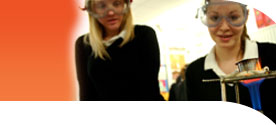



Science is a subject that fires pupils' curiosity about phenomena in the world around them, providing enjoyment through a sense of awe and wonder.
The investigative and practical nature of science and the opportunities it offers for working with others engage and motivate pupils and increase their understanding of the world. In addition, pupils enjoy exploring the contemporary applications and implications of science and its effect on their lives on a local and global scale.
The study of science allows pupils to make informed decisions about healthy lifestyle choices, including issues related to substance abuse and sexual health. Pupils learn about growth, development and health and how diet, drugs or disease can affect them.
The science programme of study provides opportunities for pupils to consider the importance of a balanced diet complemented by regular exercise, the effect of alcohol, tobacco and other drugs on the human body, and the consequences of bacterial and viral infections. Pupils also learn about preventative measures people can take against sexually transmitted diseases.
The investigative and practical nature of science provides opportunities for pupils to assess and manage risk. They become familiar with the risks associated with handling chemicals and biological materials. They learn to manage the dangers associated with experimental techniques, such as those involving electricity and intense heat and light sources. Knowledge and understanding of scientific procedures inform personal and collective decisions related to maintaining a safe environment.
The contribution of science to technological advances and innovation is at the heart of changes in the global economy. The study of science plays an essential role in contributing to young people's long-term economic well-being because it helps them develop practical and investigative skills, including the ability to obtain, analyse, evaluate and communicate data and information. These skills are essential in the workplace, whether in a scientific or non-scientific career.
The science programme of study highlights the varied career opportunities available through the study of science, allowing pupils to see how they can contribute to the future success of the economy.
The nature of scientific understanding, based on critical interpretation of observational and experimental evidence, allows pupils to develop their own opinions and become active contributors. They question and discuss issues that may affect their own lives, the development of societies and the future of the world. They learn to realise the consequences of their actions, consider ethical and moral issues and recognise how they can contribute in a positive way to sustainability.